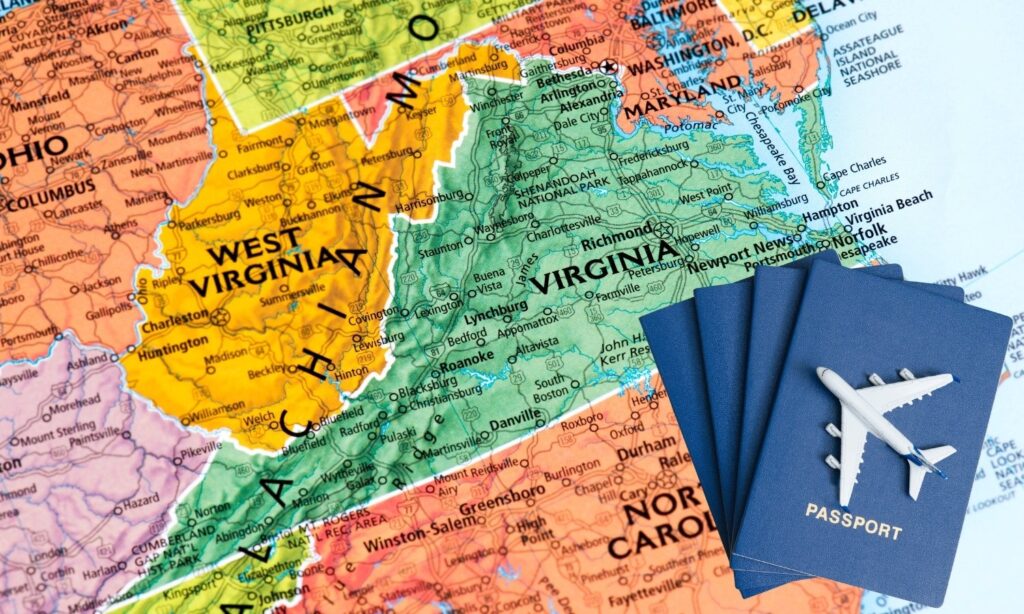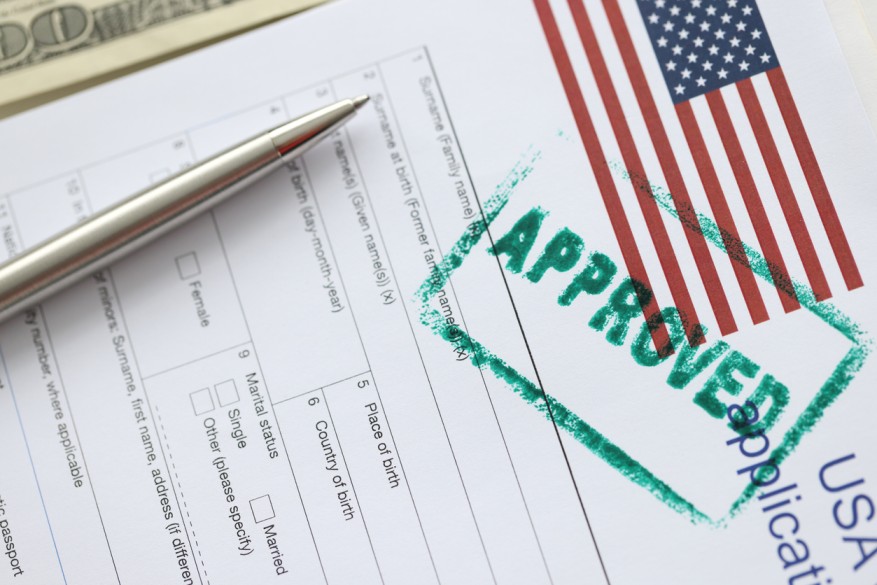Summer brings family reunions, weddings, and extended visits to Virginia—but even minor visa violations can lead to serious immigration complications. Whether you’re a green card holder in Richmond, a visa holder in Virginia Beach, or an immigrant family in Northern Virginia, understanding the legal requirements for hosting family visiting Virginia from abroad is crucial for protecting everyone’s immigration status.
With current immigration tensions and stricter enforcement, Virginia families cannot afford to make mistakes when bringing loved ones to visit. This comprehensive guide covers the most common summer travel missteps and how to avoid jeopardizing your legal status while visiting or hosting relatives.
If you ever find yourself in need of specific legal advice regarding immigration and/or visa needs, be sure to reach out to us at Cook Attorneys!
Quick Steps Overview
Before diving into the details, here’s your roadmap for safely hosting foreign family members in Virginia this summer:
Step 1: Determine the correct visa type for your family member’s visit
Step 2: Understand Virginia-specific documentation requirements
Step 3: Prepare proper invitation letters and supporting documents
Step 4: Know the authorized stay periods and avoid overstay penalties
Step 5: Maintain proper status documentation throughout the visit
Step 6: Plan the departure strategy and ensure compliance
Step 7: Handle any complications with proper legal resources
Step 1: Determine the Correct Visa Type for Your Family Member’s Visit
Understanding B-1/B-2 Tourist Visas
Most foreign nationals visiting Virginia for tourism, leisure, or visiting family and friends need a B-1/B-2 visitor visa if they’re not eligible for visa-free travel. This is the most common visa for family visits and covers:
- B-2 Tourism visa: For sightseeing, visiting friends and family, medical treatment, or vacation
- B-1 Business visa: For business meetings, conferences, or professional activities
- B-1/B-2 Combined: For trips involving both business and personal activities
Key Requirements:
- Valid passport with at least six months validity beyond your planned stay
- Proof of ties to home country (employment, property, family)
- Sufficient funds for the visit
- Intent to return to home country
Visa Waiver Program (VWP) Considerations
Citizens from 40 countries can visit the US for up to 90 days without a visa through the Visa Waiver Program. However, VWP visitors cannot extend their stay or change status, making this option less flexible for longer family visits.
Important Link: Check eligibility and apply for ESTA authorization at the official U.S. Customs and Border Protection ESTA website.
Other Visa Categories for Family Visits
- Transit visas (C-1): For brief stops while traveling to another country
- Student visas (F-1): If combining visit with educational activities
- Work visas: If the visitor plans to work during the visit (requires separate authorization)
Step 2: Understand Virginia-Specific Documentation Requirements
Federal vs. State Requirements
While immigration is federally regulated, Virginia residents must understand both federal requirements and how they apply within the state. Virginia does not have additional visa requirements beyond federal law, but certain practical considerations apply:
Virginia-Specific Considerations:
- Driver’s licenses: Visitors cannot obtain Virginia driver’s licenses on tourist visas
- In-state tuition: Tourist visa holders don’t qualify for Virginia in-state tuition rates
- Employment: Visitors on B-1/B-2 visas cannot work for Virginia employers
- Healthcare: Understanding insurance coverage for visitors in Virginia’s healthcare system
Required Documentation Checklist
For the Visitor:
- Valid passport
- Approved visa or ESTA authorization
- Form I-94 (Arrival/Departure Record)
- Proof of financial support
- Return ticket or onward travel plans
- Invitation letter from Virginia host
For the Virginia Host:
- Proof of legal status in the US
- Evidence of relationship to visitor
- Financial support documentation
- Accommodation arrangements
Step 3: Prepare Proper Invitation Letters and Supporting Documents
Essential Elements of an Invitation Letter
Your invitation letter is crucial for your family member’s visa application and entry into Virginia. Include:
Host Information:
- Full name and address in Virginia
- Immigration status (green card holder, US citizen, etc.)
- Contact information
- Relationship to visitor
Visitor Information:
- Full name and address
- Purpose of visit
- Planned arrival and departure dates
- Accommodation arrangements
- Financial support details
Supporting Documents:
- Copy of your green card or US passport
- Proof of Virginia residence (utility bills, lease agreement)
- Bank statements showing financial ability to support
- Employment verification letter
- Tax returns (if relevant)
Sample Invitation Letter Template
[Date]
[Your Name]
[Your Address in Virginia]
[City, State, ZIP Code]
To Whom It May Concern:
I am writing to invite my [relationship] [Full Name], a citizen of [their nation of citizenship] to visit me in the United States for a period of [length of days, weeks, or months], from 2026 to 2026. I am a [legal status] residing at the above address.
Purpose of Visit: [Family reunion/wedding/vacation]
Accommodation: [Details of where they will stay]
Financial Support: [Who will cover expenses]
I will be responsible for [visitor’s name] during their stay, including accommodation, food, and local transportation. I have attached supporting documents to verify my status and financial capability.
Please contact me at [phone number] or [email] if you need additional information.
Sincerely,
[Your signature]
[Your printed name]
Step 4: Know the Authorized Stay Periods and Avoid Overstay Penalties
Understanding Your I-94 Record
The Form I-94 is your family member’s most important document for tracking their authorized stay. A visiting visa (B-1/B-2) allows a maximum stay of 6 months per visit, subject to the duration granted by the immigration officer at the port of entry.
Critical Points:
- The visa expiration date is NOT the same as authorized stay period
- Check the I-94 “Admit Until Date” for actual departure deadline
- Access current I-94 records online at CBP’s I-94 website
Severe Penalties for Overstays
If you stay in the U.S. beyond your authorized period, you begin accruing unlawful presence, which can result in bans on returning to the U.S.: Overstay of 180 days to under 1 year → 3-year re-entry ban; Overstay of 1 year or more → 10-year re-entry ban
Additional Consequences:
- Automatic cancellation of current visa
- Difficulty obtaining future visas
- Potential criminal penalties under proposed legislation
- Impact on family members’ immigration applications
Extension of Stay Applications
If your family member needs to extend their visit, apply for an extension before their current authorized stay expires:
- File Form I-539: Application to Extend/Change Nonimmigrant Status
- Apply 45 days before expiration: USCIS recommends applying well in advance
- Provide valid reasons: Medical emergencies, family situations, or unexpected events
- Include supporting documentation: Medical records, family emergency proof, financial support
Important Link: File Form I-539 online through the USCIS website.
Step 5: Maintain Proper Status Documentation Throughout the Visit
Record Keeping Requirements
Maintain organized records throughout your family member’s visit:
Essential Documents to Keep:
- Copy of passport and visa
- Form I-94 arrival record
- All correspondence with immigration authorities
- Extension applications and approvals
- Medical records (if relevant to visit)
- Financial records showing support
Alien Registration Requirements
Parents and legal guardians of aliens under age 14 must ensure those aliens are registered. Within 30 days of reaching their 14th birthday, all previously registered aliens must apply for re-registration and fingerprinting.
Address Change Notifications
If your family member changes their address during their Virginia visit, they must notify USCIS within 10 days using Form AR-11.
Step 6: Plan the Departure Strategy and Ensure Compliance
Departure Planning
Before Departure:
- Verify departure date complies with I-94 authorization
- Confirm travel documents are valid
- Collect all immigration documents for future reference
- Ensure no outstanding obligations in Virginia
At Departure:
- Keep boarding passes and travel receipts
- Ensure passport is stamped upon exit
- Retain copies of all travel documents
Consequences of Late Departure
Even departing a few days late can trigger serious consequences:
- Leaving the U.S after violating your visa could have consequences, including possible bans from reentry
- Future visa applications may be denied
- Impact on other family members’ immigration cases
Step 7: Handle Any Complications with Proper Legal Resources
When to Seek Legal Help
Contact Cook Attorneys or another immigration attorney immediately if:
- Your family member’s departure is delayed beyond authorized stay
- There are medical emergencies affecting departure plans
- Immigration authorities question your family member’s status
- Extension applications are denied
- You receive any immigration enforcement notices
Virginia Immigration Resources
Legal Aid Organizations:
- Virginia Coalition of Latino Organizations – Community resources and referrals
- Catholic Charities Immigration Services – Multiple Virginia locations
Government Resources:
- USCIS Virginia Field Office – Located in Fairfax
- Virginia State Bar Immigration Section – Cook Attorneys’ own Aaron Cook and other attorneys local to your area can be found here
Emergency Situations
Medical Emergencies:
- Document all medical treatment
- Apply for emergency extension if needed
- Maintain communication with immigration authorities
- Keep detailed records of medical necessity
Natural Disasters:
- USCIS may provide relief for extraordinary circumstances
- Document the emergency situation
- Apply for appropriate relief measures
- Contact USCIS immediately for guidance
Common Mistakes Virginia Families Make
1. Assuming Visa Validity Equals Authorized Stay
Many families mistakenly believe that a 10-year multiple-entry visa means their family member can stay for 10 years. The visa only allows entry attempts; the actual authorized stay is determined by the CBP officer at entry and recorded on the I-94.
2. Ignoring Address Change Requirements
Failing to report address changes during the visit can complicate future immigration applications and may be considered a violation of immigration law.
3. Working Without Authorization
Even helping with family business or receiving payment for services can constitute unauthorized employment and jeopardize future immigration benefits.
4. Inadequate Financial Documentation
Insufficient proof of financial support can lead to visa denials or entry refusals. Always maintain clear documentation of how the visit will be funded.
5. Poor Record Keeping
Failing to maintain proper documentation during the visit can create problems if immigration issues arise later.
Staying Updated on Immigration Policy Changes
Immigration policies can change rapidly. Stay informed through:
- USCIS Policy Manual – Official policy updates
- State Department Travel Advisories – Current visa and travel information
- Virginia Immigration Legal Network – Local updates and resources
Conclusion
Immigration mistakes can have lasting consequences. The best defense is careful planning, thorough documentation, and timely action. If you’re unsure about your situation, consult the experienced immigration attorneys at Cook Attorneys to ensure your family visit stays compliant and joyful.
Remember: Immigration mistakes can have long-lasting consequences for your entire family’s immigration journey. Taking the time to understand and follow proper procedures protects everyone involved and ensures your family can continue to visit safely in the future.
By following this comprehensive guide, or even contacting our team here at Cook Attorneys, Virginia families can enjoy meaningful summer visits with their loved ones while maintaining full compliance with U.S. immigration law.
This guide is for informational purposes only and does not constitute legal advice. Immigration law is complex and subject to change. If you are in need of specific legal advice, please get in touch with our office. We would be happy to provide actual legal counsel for specific situations and the most current legal requirements.








